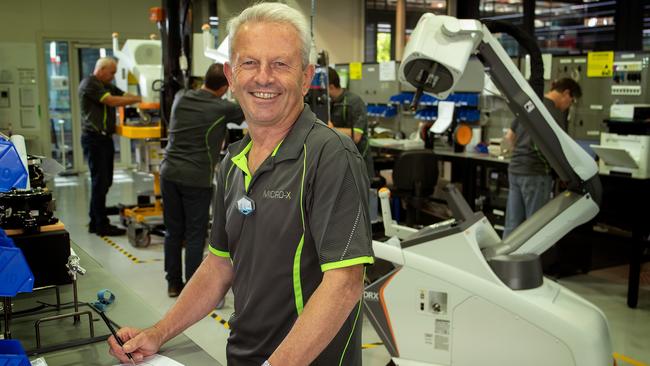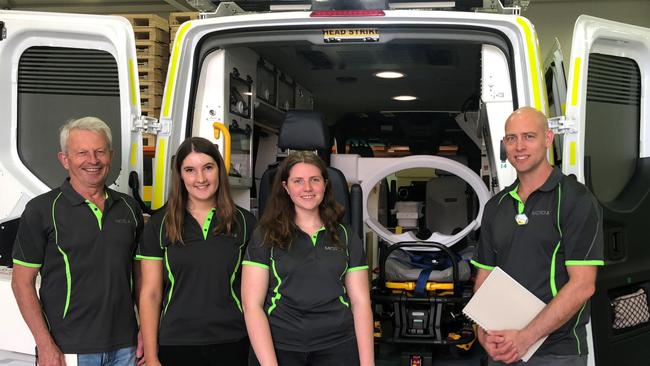Micro-X’s stroke scanner project gets millions in funding
Aussie share market-listed company Micro-X has won millions in taxpayer funding for the development of emergency stroke detection technology.

ASX-listed X-ray systems maker Micro-X has secured $8m from the federal government over five years to develop a globally revolutionary scanner to enable faster detection of strokes in emergency situations.
Micro-X, along with the Australian Stroke Alliance, is developing a lightweight ring scanner using carbon nano tube (CNT) emitter and X-ray tube technology.
If successful, the scanners will be the country’s first mobile stroke detection units for ambulances and medical aircraft.
In October, Micro-X and ASA applied to the government’s Medical Research Future Fund for funding to enable Micro-X to develop a prototype.
The $8m is part of the total $40m awarded to the Australian Stroke Alliance for the overall “Stroke Golden Hour” project proposal to transform pre-hospital stroke care in road and air ambulances.
Early diagnosis and treatment is critical when a person suffers stroke, which occurs when blood supply to the brain suddenly stops, either due to bleeding or blockage, to prevent damage.
A CT scan is currently the only accurate way of pinpointing the exact cause, so medical professionals can make critical interventional decisions.
But conventional CT technology’s size, weight, and workflow prohibit the widespread deployment of Mobile Stroke Units with Australia having just one MSU, at the Royal Melbourne Hospital.

Micro-X’s CT scanner is being designed to overcome critical barriers of weight and size, and so far, imaging trials in partnership with the Melbourne Brain Centre have helped shape imaging software inputs for the scanner.
The device itself is expected to take a number of years from operational prototype to approved use in health settings, subject to various regulatory approvals.
Micro-X managing director Peter Rowland said the product, if successful will be a global breakthrough with an addressable market of $25bn.
“We have the potential to miniaturise diagnostic brain CT imaging so that a scanner could become small enough and affordable enough to allow widespread pre-hospital stroke diagnosis and treatment in road ambulances with air ambulances offering unprecedented stroke care in rural and remote regions,” Mr Rowland said.
“The compact, rugged, low-cost CT scanner which Micro-X will develop under this program will be a global first never before imagined.
“Once completed, this brain CT product will become the fourth pillar of our commercialisation strategy for our Australian developed, proprietary, cold cathode X-ray technology.”
Micro-X will also work with Fujifilm in Japan, the Johns Hopkins University in Baltimore and the MADA Health Collab Team in Melbourne to develop the scanner prototype.
South Australian company Micro-X, valued at $184m, has already commercialised two mobile X-ray devices overseas – Carestream Nano for hospital settings and Rover, a more rugged product for emergency medical use by defence forces.
It is also working on mobile improvised explosive device (IED) detection technology for defence departments in Australia and overseas.
The business raised $33m last month, and ended its alliance with global defence giant Thales.
Micro-X shares closed 6.6 per cent higher at 40c.




To join the conversation, please log in. Don't have an account? Register
Join the conversation, you are commenting as Logout